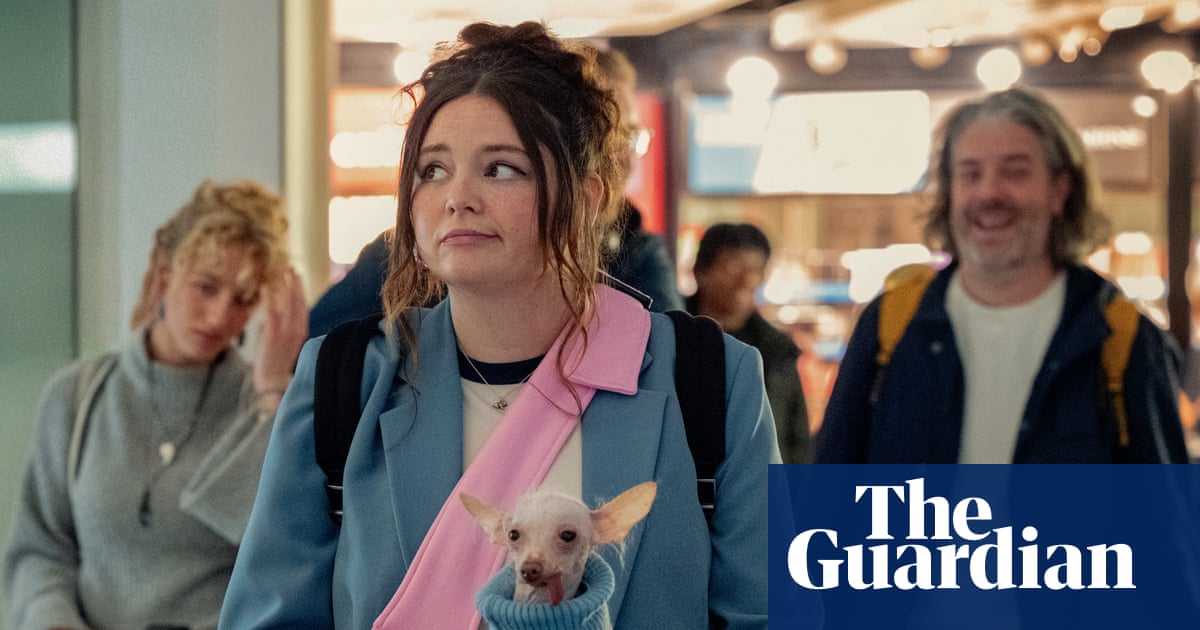In the opening episode of Lena Dunham’s Netflix show Too Much, a heartbroken New Yorker moves to London to live out her fantasy of British life and love stories. Jess is quickly swept up in her feelings for an indie musician, dreamily referring to him as “My Mr Darcy, my Rochester, my Alan Rickman”.
Produced by the team behind Bridget Jones, Notting Hill and Love Actually, the show was inspired by Dunham’s own move to London in 2021.
But the wholehearted embrace of the UK by a quintessential New Yorker – “I loved Jane Austen, I loved Charlotte Brontë … I was one of those little anglophile kids” – reflects a wider cultural pivot.
Three decades on from Cool Britannia, cultural commentators say we are in the throes of a “Brit-culture renaissance”: British men are once again a romantic ideal, Oasis are back together, “Britishcore” became a viral social media trend and Jane Austen is getting more reboots than Marvel comic books. “Cool Britannia is back!” Tatler declared, as it dedicated its new August cover to the offspring of Britpop stars.
“Youth culture today is more visually and sonically proud of its Britishness than it’s been in decades,” said Luke Hodson, the founder of Nerds Collective, a youth marketing agency. “The UK’s global output is hitting differently right now.”
This summer, thousands watched Olivia Rodrigo profess her love for all things British during her headline set at Glastonbury. “I love England so much. I love how nobody judges you for having a pint at noon. I love English sweets, all the sweets from M&S, Colin the Caterpillar specifically,” said the pop star, dressed in union flag shorts. “I have had three sticky toffee puddings since coming to Glastonbury. And as luck would have it, I love English boys,” she added, referencing her beau Louis Partridge.
Over the past year, Google searches for “British men” have increased by 21%, while Americans have been writing of their preference for dating Britons. Even though Taylor Swift has traded Hampstead Heath for Americana (and wrote So Long, London to mark the end of years spent in the company of British people), other high-profile transatlantic relationships are spotlighting UK-US links: Tom Holland and Zendaya are regularly spotted in New Malden’s Waitrose; Andrew Garfield took Monica Barbaro to Wimbledon.
Are we Britons confirming our own bias? Maybe not. Fresh on the tail of Too Much, Netflix’s My Oxford Year is yet another series about an American student falling in love among the city’s dreaming spires.
But there may be something more here than just a transatlantic love-in. The UK’s resurgent pop culture moment has coincided with a 1990s renaissance that has swept across music, film and fashion.
Call it Cool Britannia 25. Its potency, according to Hodson, lies in its blend of 90s national pride mixed with a celebration of a more inclusive and globally resonant British identity.
“This isn’t a repeat of Cool Britannia as we knew it,” Hodson said. “This is a redefined moment, powered by a more diverse and globally connected Britain. Back then, it was Blur, Oasis, the Spice Girls – iconic, sure, but also largely monocultural. Today’s wave feels less like a marketing push and more like an organic reclamation of British identity by the communities who were historically left out of the narrative.”
Hodson referenced Stormzy wearing a union flag bulletproof vest designed by Banksy at Glastonbury in 2019, AJ Tracey wrapped in the union flag for Dork magazine, Central Cee performing in British flag graphics and streetwear brands such as Lostboys and IDA incorporating the flag in their designs.
after newsletter promotion
“You’ve got kids in the US dressing like inner-city Londoners, using UK slang, mimicking Skepta. That used to be unimaginable,” he said.
Analysis shows that British slang words such as “bonkers” and “cheeky” are increasingly being adopted in the US, thanks to music and gen Z’s liking for television shows including Love Island.
This has been expressed by megastars including Drake collaborating with British rappers and Charli xcx storming the world with her album Brat – a quintessentially London aesthetic that evoked turn of the century excess and rave culture.
Are the original Cool Britannia generation happy to see their little bit of history repeating? Not all of them believe it is.
Daniel Rachel, the bestselling author of Don’t Look Back in Anger: The Rise & Fall of Cool Britannia, said 90s culture could not be easily separated from the sociopolitical circumstances of the time – including the after-effects of Thatcherism and a renewed national pride with the election of Tony Blair, who “few people would measure Keir Starmer against”.
“The decade exploded because of the desperation and repression creative people felt and engineered into their work,” Rachel added. “We may be living through a similar pattern of events, particularly with the troubling rise of rightwing rhetoric across the globe, but if Cool Britannia is to be repeated the seeds will not be found in glossy Netflix-commissioned sitcoms or attention-grabbing social media influencers.
“They will be bubbling in the underfunded, underpaid, backstreets of the UK where our country’s greatest artists have always risen from.”
